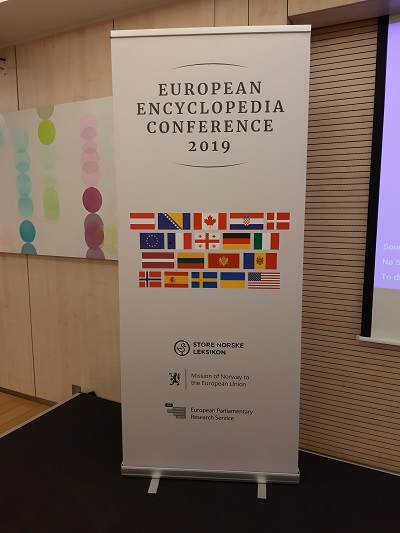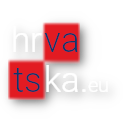 A conference that brought together encyclopedia editors and publishers from both sides of the Atlantic was held at Norway House in Brussels, organised by the Great Norwegian Encyclopedia, the European Parliamentary Research Service, and the Mission of Norway to the European Union. The Miroslav Krleža Institute of Lexicography was represented by its director, Bruno Kragić, and Nataša Jermen, assistant director for research and inter-institutional cooperation.
A conference that brought together encyclopedia editors and publishers from both sides of the Atlantic was held at Norway House in Brussels, organised by the Great Norwegian Encyclopedia, the European Parliamentary Research Service, and the Mission of Norway to the European Union. The Miroslav Krleža Institute of Lexicography was represented by its director, Bruno Kragić, and Nataša Jermen, assistant director for research and inter-institutional cooperation.
It was the first time that editors and publishers of general encyclopedias from 17 European and North American countries gathered in such large numbers in order to discuss the role of encyclopedias in the digital age, which is characterised by a constantly growing amount of information from various sources with free access. Encyclopedia publishers face many challenges, from the financial sustainability of projects and institutions to threats of their ‘extinction’ and replacement by new, digital sources of knowledge. By fulfilling their basic goal – offering access to reliable and verified information of general interest in the user’s native language – encyclopedias can play an important role in the struggle against misinformation, false news, and propaganda. The goal of the conference was to share experiences about the current state and functioning model of national encyclopedias and define possible areas of cooperation.
The conference was attended by speakers from Austria, Bosnia and Herzegovina, Canada, Croatia, Denmark, France, Georgia, Germany, Italy, Latvia, Lithuania, Montenegro, Norway, Spain, Sweden, Ukraine, and the USA.




















 Hrvatska
Hrvatska  Hrvatski
Hrvatski  Portal hrvatske
Portal hrvatske Portal
Portal Hrvatski
Hrvatski  Hrvatska.eu
Hrvatska.eu Studia
Studia  Digitalizirani
Digitalizirani